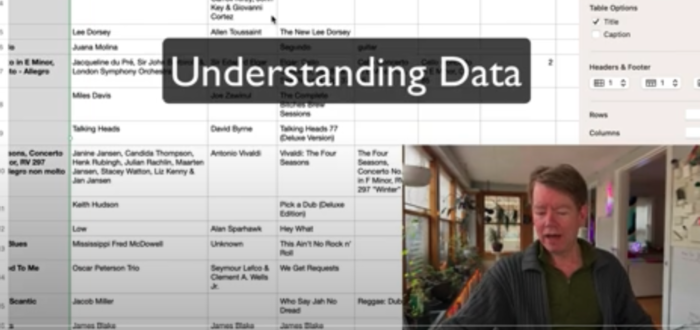I’ve written many articles, both here and on Medium. Blog posts are a better term, but whatever phrase we use, writing for me is an essential tool for expressing and analyzing ideas. Determining a suitable topic, outlining sequence and concepts, then creating a compelling narrative where others may gain from my perspective. Paragraph after paragraph, it’s enjoyable to communicate ideas in words. I recently spent two months revising the written part of my course in Information Architecture I teach for Northwestern’s Masters in Information Design and Strategy degree. It made me consider writing my own book on the subject. Yet, there was an issue, most students seemed to be engaged in the practical, hands-on part of the course. As is understandable, the text is meant to offer a larger conceptual overview that helps inform action. But does it? Asking the students, they seemed to spend little time reading or engaging with the writing. It became a puzzle, was it poorly written? Not engaging? How do I best convey ideas and foundational concepts so others can jump-start their understanding and mastery of the topics?
During COVID I became enthralled with YouTube. As with many, it became a proxy for social connection. Based on a random algorithm, a familiar topic of interest, or just watching someone play a game or critique a movie. It was therapeutic to see and hear someone demonstrating their thoughts. It was a lifeline. It later became a habit, to spend an hour or so exploring the unique format and style that went with both popular and novice videographers. In a similar vein, podcasting also took on a fascination where dialog replaced or enhanced the narrative goals. Also, showcased debates and diversions. Containing often a spontaneity that written or filmed content rarely offered (such as the regular 2-3 hour conversations from the hosts of Blank Check). These, along with streaming or broadcast television offered compelling reasons not to read.
What did reading offer? Relative silence is a positive, one can drift into their own process to hear the imagined voice or voices. Some fiction can describe events, characters, and thoughts in a way that is entirely non-vocal or visual. Still, most popular fiction I read seemed to pick up on the visual storytelling and seemed to hook into a plot that easily translated to those other media. I felt like I was reading a screenplay. Also being on a device, as I read on an iPad didn’t help as other, quicker ways to consume content beckoned.
And so I don’t fulfill the title too directly, I have taken a turn to not write my course down but to create videos that may just be me talking, or as I get more proficient, demonstrate with examples or flow through some kind of demonstration. Considering the level of professionalism on YouTube, these seem to come from 10 years ago in terms of effort and quality. Still, much like a podcast, would a video suffice to get the point across better? As a frequent creator of movies to share interaction design, which I have been a big proponent of – each of my projects has an accompanying movie- I think storytelling with audio and video can align us toward better conversations. I love a good agenda before a meeting, but reviewing and demonstrating concepts, especially live, can often be problematic. Especially code reviews, where things often just don’t demonstrate the effort effectively. Like all good writing is actually editing, I find video editing to be a new skill to practice. Yet, most of my better efforts are just to shoot another take until I get it right.
I happily share here a few of my favorites, at the time of releasing this blog post, I’m about 20 videos into the effort. I feel like I should reshoot all of them, but as a fan of iteration, best to get feedback, so please take a look and let me know if these, or writing are your preferred media. Also with the current craze being automated writing, is audio and video going to become the preferred media to learn new things? Based on curiosity stream and nebula not to mention Linda and most university courses, video does seem to have a firm grasp so this could only be my own realization of the inevitable. Embrace change.
